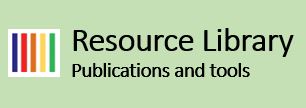11/09/2020 - External End Evaluation Dialogue & Dissent programme
.jpg)
Women in Jur River County, South Sudan are trying their new energy-efficient cookstoves. Credit: Cordaid
The overall aim of PfR’s Dialogue & Dissent programme is to make vulnerable people more resilient to disasters in the face of climate change and environmental degradation and to enable sustainable inclusive growth. To achieve this overall aim, PfR lobbies and advocates for the adoption of Integrated Risk Management.
The programme started implementation in 2016, and runs until December 2020. It was evaluated in the first half of 2020 by a team of the European Centre for Development Policy Management (ECDPM) under the lead of Volker Hauck (Head of Programme). The full Evaluation Report can be found here.
Key results and achievements
- The programme was successful in drawing the attention of policy makers and practitioners at country, regional and global levels, to the benefits of an integrated approach to disaster risk reduction, climate change adaptation and eco-system management;
- The programme was able to balance coherence and diversity, maintaining a clear and shared common agenda whilst allowing programme implementation to respond to the priorities and needs of country partners;
- PfR was largely successful in strengthening the capacities of implementing (contracted) partners and CBOs at country level to lobby and advocate IRM, thereby laying the foundations for longer term promotion of IRM;
- Across the 10 countries, good (in some low-middle-income countries even impressive) results were achieved in influencing national, sub-national and community level authorities to adopt and champion IRM policies and practices;
- The Global Programme was successful in bringing IRM-related experiences from country level into regional and global policy dialogues and reviews, this being something that other global stakeholders value and recognise as one of the programme’s area of added value;
- During the more recent period of PfR implementation, the programme sharpened its focus on inclusiveness, vulnerability and gender which is relevant in view of PfR impact statement that aims to enhance the resilience of vulnerable people in the face of climate change and environmental degradation;
- The Alliance collaboration, while displaying areas in need of further attention, was beneficial to the respective Alliance members as it created opportunities to address IRM jointly and to reach out to other Alliance members’ partners and networks thereby creating synergetic effects.
Annexes to the evaluation report can be found here:
Areas requiring additional attention
- The overall Theory of Change and its underpinning assumptions and lessons learnt were not updated based on lessons of experience, which undermined its value as a strategic management tool;
- Alliance members recognised the need to address the capacity needs of government actors in selected country contexts but the issue was not systematically addressed in the review of the programme’s capacity strengthening strategy and approaches;
- The IRM investment domain, i.e. mobilising resources for IRM investments and making investments IRM proof, scored less well as compared to the policy and practice domains, due to lack of clarity of objectives and insufficient expertise and guidance to ensure impact;
- While PfR put a strong focus on robust planning, monitoring and evaluation (PME), knowledge management and learning were not given the prominence they deserved, until more recently, and were not sufficiently integrated with PME processes;
- PfRs efforts to connect global policy frameworks on IRM downwards into regional and country level policy processes was inadequate. This was due to capacity constraints as well as the divers and complex policy contexts with which it had to deal.
- Developing regional programmes from scratch with overall limited resources was challenging because Alliance members were unfamiliar with regional policy processes which have their own (political) character, priorities and networks and which had to be discovered as of 2016 when the regional programmes started.
- Whilst, PfR Alliance staff from countries and regions were increasingly involved in strategic discussions over the life of the programme, their role in the governance of the Alliance and the strategic management of the programme has been limited.
Management Response from PfR
The Alliance is pleased that the evaluation confirmed that “there is broad agreement that the PfR programme is highly relevant and of added value in line with its objectives.” This was further elaborated upon by the analysis that PfR SP has to a large extent been successful in strengthening the capacity of CSOs, achieving meaningful results in terms of improved policies and enhanced practices, thereby making communities resilient in the face of increasing disaster risk. It was noted that “the programme was able to balance coherence and diversity. This allowed PfR to respond to different local contexts. Linkages to global frameworks have helped shape legitimacy for IRM promotion and global frameworks were localised to a certain extent. Recent efforts to further strengthen the programme’s attention on inclusion and resilience should be appreciated.”
In addition, it welcomes the appreciation of the close collaboration within the Alliance, and the assessment that this has provided room for tailored context specific approaches that has been particularly fruitful. PfR specifically welcomes the evaluators’ conclusion that the Alliance has been beneficial to its implementing partners.
The evaluation provides important directions for future work. There are strong recommendations, among others, in relation to the PME system, government stakeholders, the role of field staff and strengthening of the linkages across various programme levels.
Read PfR's full Management Response here, in which PfR expresses its view on the conclusions and recommendations in the evaluation report in detail.





